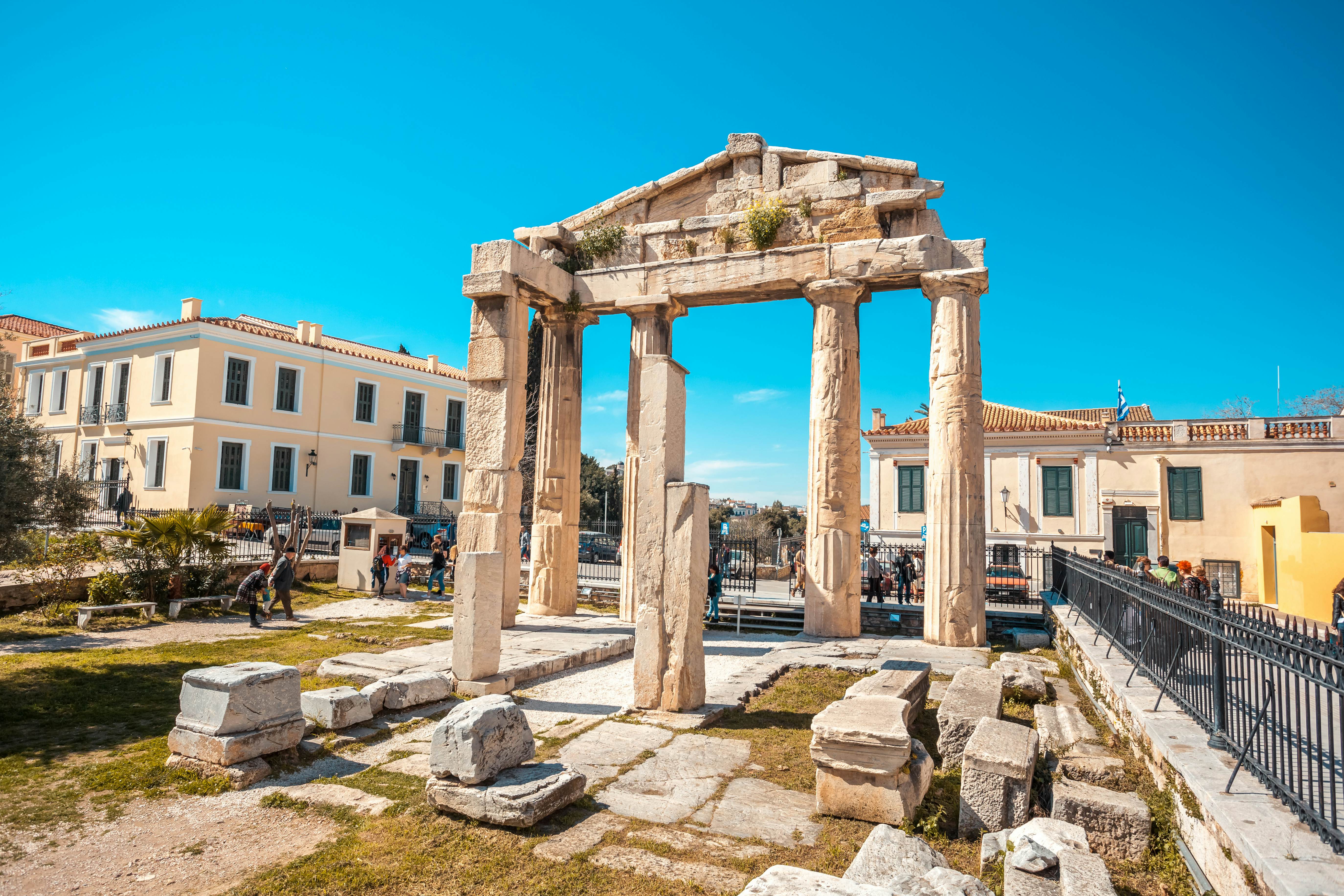
Itinerary
Day 126.11.2024Tuesday

Little Kook

Temple of Hephaestus
Ancient Greek place of worship, built in the Doric style out of marble with bas relief friezes.

Archaeological Site of Kerameikos
Extensive ruins of ancient Athens' largest cemetery & a museum with finds from the tombs.

Fallen Aviators Monument
4 Places
Day 227.11.2024Wednesday

Zappeion Hall

Temple of Olympian Zeus
This half-ruined temple is dedicated to Zeus, the chief of the Olympian Gods, and that is how it took its name, the temple of the Olympian Zeus. Construction began in the 6th century BC during the rule of the Athenian tyrants, who envisaged building the greatest temple in the ancient world, but it was not completed until the reign of the Roman Emperor Hadrian in the 2nd century AD, 638 years after the project had begun. During the Roman period the temple, which included 104 colossal columns, was renowned as the largest temple in Greece and housed one of the largest cult statues in the ancient world.

Panathenaic Stadium
Ancient Athens's largest building. the Panathenaic Stadium, has a capacity for 60,000 spectators. Constructed around 335 BC during the era of Herodes Atticus, the venue hosted the Panathenaic Games where runners competed in races around the track. The 204-meter-long track was designed with four double herms, where runners would turn in the races.

Syntagma Square
Syntagma Square is the central square of Athens. The square is named after the Constitution that Otto, the first King of Greece, was obliged to grant after a popular and military uprising on 3 September 1843. It is located in front of the 19th century Old Royal Palace, housing the Greek Parliament since 1934. Syntagma Square is the most important square of modern Athens from both a historical and social point of view, at the heart of commercial activity and Greek politics. Every day at 11 am, there is an elaborate changing of the guards ceremony that takes place out the front of the Parliament building and the tomb of the unmarked soldier. You should definetely watch this. This ceremony, which is held every day, is performed more magnificently on Sundays. This ceremony is a totally free activity. Additionally, Foreign visitors can visit the Hellenic Parliament for free. English-language guided tours are held every Friday and Monday at 3:00 PM during the months of June, July, and September.
Pláka
Charming village ambience. Between the northern slopes of the Acropolis and Ermoú Street, the picturesque Pláka neighborhood is a tourist hot spot. Narrow pedestrian streets and the cheerful little squares of the Pláka quarter are lined with lovely bougainvillea-trimmed pastel-painted houses, restaurants, and shops.

Parthenon
The majestic ruins of an ancient Greek building, known for its dignified white marble columns and perfect sense of proportion. It was completed in 438 BC, although decoration of the building continued until 432 BC. It is the most important surviving building of Classical Greece, generally considered the zenith of the Doric order. Its decorative sculptures are considered some of the high points of Greek art. The Parthenon is regarded as an enduring symbol of Ancient Greece, Democracy and Western civilization, and one of the world's greatest cultural monuments. To the Athenians who built it, the Parthenon, and other Periclean monuments of the Acropolis, were seen fundamentally as a celebration of Hellenic victory over the Persian invaders and as a thanksgiving to the gods for that victory.

Erechtheion
The Erechtheion is an ancient Greek temple on the north side of the Acropolis of Athens in Greece which was dedicated to both Athena and Poseidon. The second largest temple on the Acropolis has a complex and unique structure, including its famous Porch of the Caraytis with statues of six graceful maidens on the south side and a four-pillared porch with six Ionic columns on the north side.

Temple of Themis

Roman Agora
Adjacent to the Ancient Agora is the site of the Roman Agora. While it may all seem like one site, these buildings were constructed later, and construction eventually moved on to the site of the Ancient Agora. One of the easily recognizable sites here is the Tower of the Winds.

Acropolis of Athens
Ruins of iconic 5th-century B.C. temple complex on Athens' rocky hilltop undergoing restoration.

Hadrian's Library
Hadrian's Library, founded by Emperor Hadrian in AD 132. Even later, during Byzantine times, three churches were built near the site of the library. You can see one wall of Hadrian's Library and ruins of the Roman Agora from the street, but if you want to explore further, you can buy a ticket and walk through the ruins.

Lycabettus Hill
Walkway through a wooded, steep-sloped park to a lookout near a chapel, popular for sunset views.
12 Places
